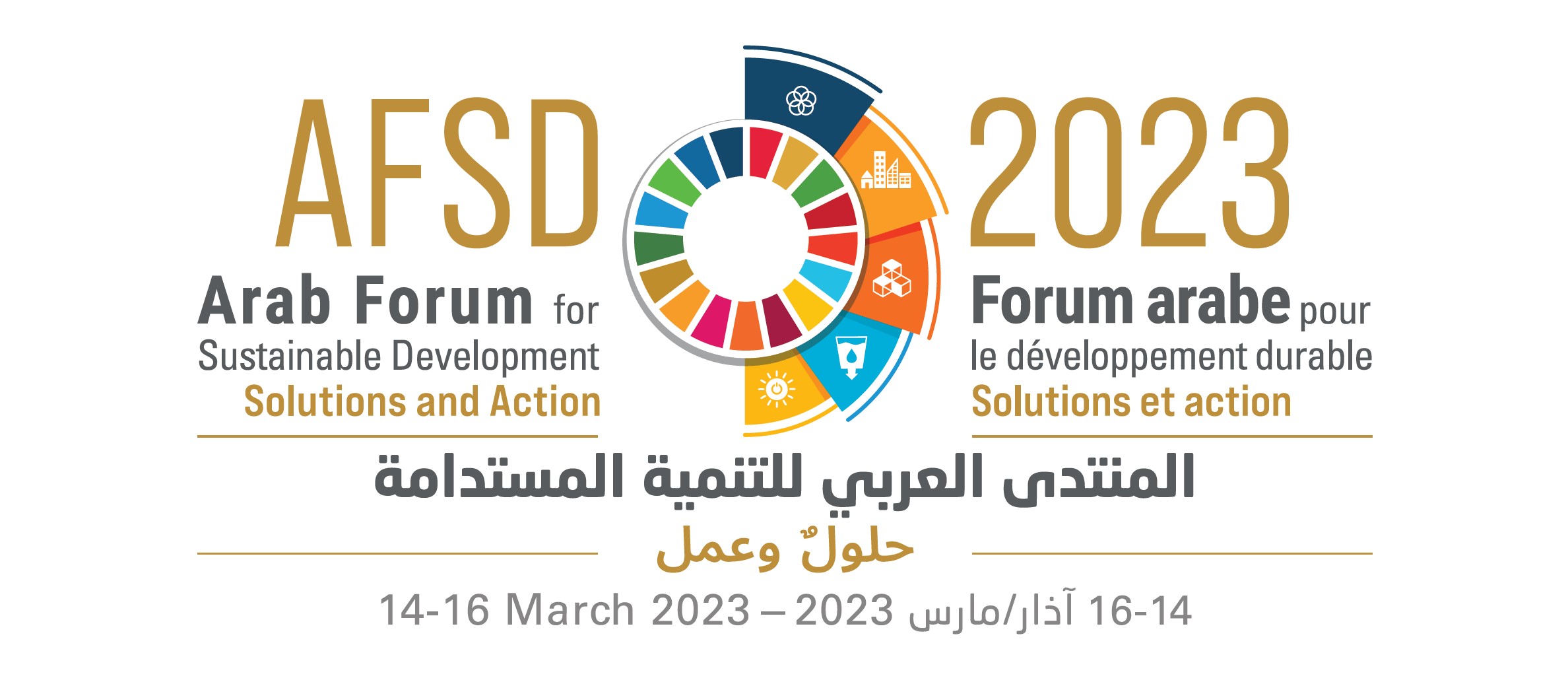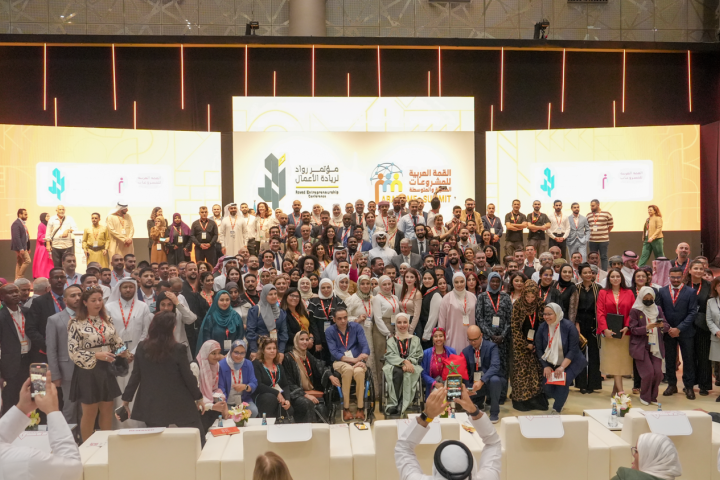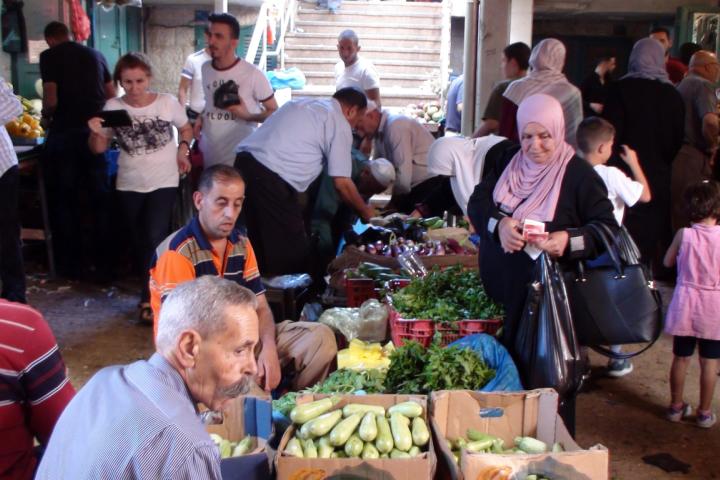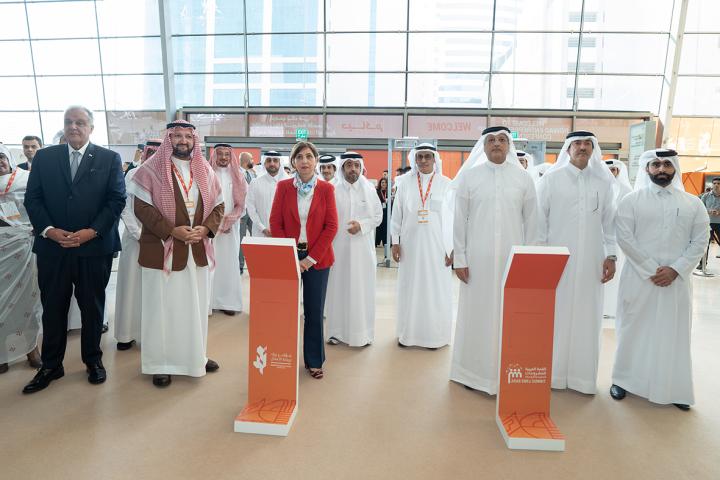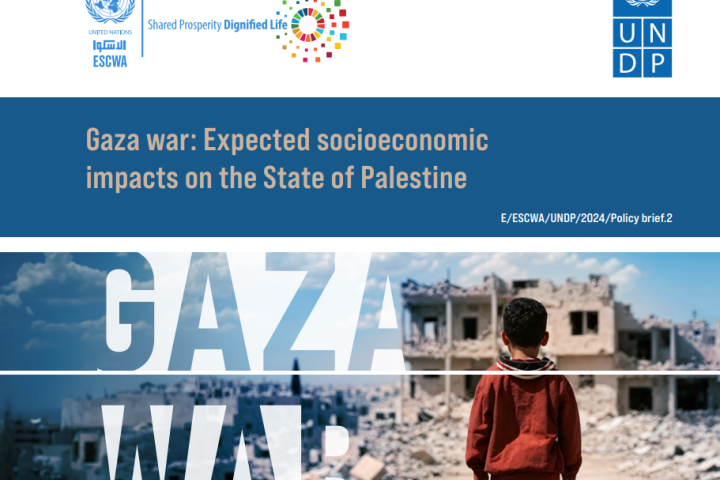Beirut, 17 March 2023--To engage Governments and relevant stakeholders in drafting and implementing the right policies to achieve the Sustainable Development Goals (SDGs) in the region, and to build Arab countries’ resilience in the face of multiple crises, the United Nations Economic and Social Commission for Western Asia (ESCWA) and partners convened the Arab Forum for Sustainable Development (AFSD-2023) at the UN House in Beirut. The event gathered a large number of high-level delegations and representatives of Arab Governments, regional and international organizations, civil society and private sector, as well as parliamentarians, researchers and academics.
The event, themed “Solutions and Action”, was organized from 14 to 16 March in partnership with the League of Arab States (LAS) and 16 UN regional entities. It was inaugurated by LAS Secretary-General Ahmed Aboul Gheit, UN Deputy Secretary-General Amina Mohammed, Minister of Planning and International Cooperation of Yemen and Chair of this year’s forum Waed Badhib, and ESCWA Executive Secretary Rola Dashti.
“The picture is clear: the world, including the Arab region, is not on track to accomplish the Goals. With much work remaining, time is running out for leaders to correct course,” UN Deputy Secretary-General Amina Mohammed said. “We are in a ‘make or break’ year for the Sustainable Development Goals. The time is now or never,” she stressed. “We must be realistic but also bold. We must prioritize but ensure that we remain true to the principles of the 2030 Agenda. The region needs to present its own vision for a breakthrough.”
The Forum urged the international community to support developing countries –particularly conflict-stricken and highly indebted ones – in achieving debt sustainability, to increase access to affordable long-term financing, and to align financing flows to the SDGs. It also urged Governments in the region to leverage resources and human capital to tackle rising poverty, food insecurity and inequality, and promote partnerships among the public and private sectors to achieve the SDGs.
“Every day, we must deal with a number of overlapping issues which can be quite complex. That’s why we need to develop sustainable strategies, and build the capacity of national and regional institutions to better face those challenges”, Aboul Gheit said.
The three-day event also included a variety of plenaries, thematic discussions and special sessions, and reviewed progress towards five of the SDGs, namely SDG 6 (on clear water and sanitation), SDG 7 (on affordable and clean energy), SDG 9 (on industry, innovation and infrastructure), SDG 11 (on sustainable cities and communities), and SDG 17 (on partnerships for the Goals).
For his part, Badhib said the Forum was an opportunity to explore ways to accelerate the achievement of the 2030 Agenda, and overcome challenges in this regard.
With 75% of its population projected to live in urban areas by 2050, the Arab region is one of the most urbanized worldwide and faces a rising demand for energy. In light of those facts, speakers called for an equitable and inclusive energy transition to reach net zero emissions.
Moreover, the pandemic and the war in Ukraine have prompted many Arab countries to adopt strategies to become self-sufficient in food, placing additional pressure on scarce water resources. But as 90% of people in the region live in water scarce countries, the Forum called on Arab governments to ensure water security for all, particularly for vulnerable groups.
In her turn, Dashti suggested adopting a new technology-based approach to keep up with the fourth and fifth industrial revolutions. “It is unacceptable for an Arab child to be born in debt, and to inherit debt instead of a bright future. Therefore, it has become imperative for all of us to work together to create change”, she added.
The Forum also provided a set of policy and financing solutions to tackle current development challenges, and explored ways to expand digitization, accelerate industrial development, boost urban resilience and create jobs for youth.
The annual AFSD is the primary regional mechanism for the follow-up and review of the 2030 Agenda on Sustainable Development. Its findings and recommendations, conveying key messages from the Arab region and its countries, will be submitted to the High-Level Political Forum (HLPF) on Sustainable Development to be held in July 2023.
For more information, visit the AFSD microsite: afsd-2023.unescwa.org.
****
About ESCWA
One of five United Nations regional commissions, ESCWA supports inclusive and sustainable economic and social development in Arab States, and works on enhancing regional integration.
For further information and to organize interviews, please contact:
Ms. Maryam Sleiman, Public Information Assistant, +961-81-769-888; sleiman2@un.org
Ms. Rania Harb, Public Information Assistant, +961-70-008-879; harb1@un.org








